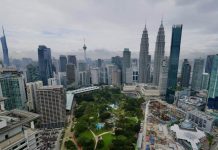As Malaysia stands on the threshold of Budget 2024, it faces a critical juncture demanding strategic fiscal policies to propel economic growth and ensure long-term development.
The proposals voiced by Datuk William Ng, national president of the Small and Medium Enterprises Association of Malaysia (SAMENTA), and insights shared by Wilson Beh, president of the Fintech Association of Malaysia, Farah Rosley, Malaysia Tax Leader, Ernst & Young Tax Consultants and Professors Adeeba Kamarulzaman, CEO and pro vice-chancellor and Professor Nafis Alam, head of school of business, Monash University Malaysia, offer invaluable perspectives on the diverse needs of the Malaysian economy.
Empowering SMEs
Ng advocates for a focused approach towards fostering independent SMEs and elevating their position within the value chain. His proposition to shift financial assistance mechanisms from direct grants to matching grants, low-interest loans, and financing guarantees is pivotal.

Emphasising the significance of mandatory business registration, Ng underscores the need for transparent and effective disbursement of government assistance. His proposal to empower trade associations to provide mentoring, business information, and linkage to government programs is a strategic step toward nurturing entrepreneurship in Malaysia.
“We suggest mandatory registration of all businesses with the Companies Commission of Malaysia and relevant agencies, including the Malaysia External Trade Development Corporation and SME Corp to ensure that assistance can be disbursed based on data and suitability and eliminate intermediaries.
“We also hope that Budget 2024 would empower trade associations to provide mentoring, business information, linkage to government programmes and capability building programmes by providing matching grants for association activities,” said Ng.
Meanwhile, to upgrade SMEs in the value chain, Ng said there is a need to strengthen SME’s capacity and capability to supply international companies through intensive business matching and capacity-building programmes.
The government can also encourage SMEs to invest in research and development (R&D) through matching grants of up to RM50,000 for collaborative R&D activities with public and private higher education institutions, as well as technology and patent licensing, and hiring of technical and subject experts.
Fostering Fintech Growth
In the rapidly evolving fintech landscape, Wilson Beh, president of the Fintech Association of Malaysia, stresses the need for fiscal policies aligned with the industry’s global nature. He emphasizes the necessity of targeted tax incentives to attract both Foreign Direct Investments (FDIs) and Domestic Direct Investments.

Beh’s insights underscore the importance of fostering an environment conducive to fintech innovation, acknowledging its borderless competition and inherent potential for growth.
He said: “Taxation has a significant impact, either boosting or hindering various sectors of our economy. Fintech, being inherently global, urges us to meet international standards
in our approach to innovation and development.
“While subsidies and stimulus incentives have been crucial and continue to underpin fintech growth in Malaysia, inherent borderless competition in the industry calls for fiscal support to sustain our current progress.
“As the Fintech industry in Malaysia matures, fiscal incentives for growth stage entities is key to ensure the continued growth of fintech which will in turn support Malaysia’s growth trajectory.”
Addressing Societal Concerns
Beyond economic growth, Budget 2024 must address the pressing concerns of Malaysian citizens. Rising costs of living, quality healthcare, and education are paramount. Therefore, Ng proposes for higher tax deductions for healthcare and education expenses resonates deeply with the needs of the people, alleviating their financial strain and ensuring a higher quality of life.
“We propose that the government provide a two per cent tax reduction to enable these savings to be reinvested in business development,” said Ng, advocating measures to enhance citizens’ disposable income.
Promoting Stability and Sustainability

In line with the objective of continued economic stability and growth, it is anticipated that Budget 2024 will focus on intensifying national competitiveness. Policies should encourage a flow of Foreign Direct Investments (FDIs), fostering the development of human capital and promoting healthy competition in the local economy.
Farah Rosley, Malaysia tax leader, Ernst & Young Tax Consultants Sdn Bhd, emphasises the importance of transparent and reasonable tax incentives. Encouraging renewable energy and green initiatives can further drive sustainability, aligning Malaysia with global environmental goals.
Education and Talent Development
Professors Adeeba Kamarulzaman, CEO and pro vice-chancellor and Professor Nafis Alam, head of school of business, Monash University Malaysia, stressed the need for education that prepares the workforce for the future.
Investments in updated curricula, well-trained teachers, digital resources, and practical, job-relevant skills for vocational students are essential. Higher education institutions require investments in research, faculty development, and infrastructure. Scholarships, financial aid, and public-private partnerships can make tertiary education accessible, driving research-led economic growth.
Professor Nafis advocates for targeted subsidies and social spending in education and healthcare to reduce economic inequality.
As Malaysia charts its course in the global economy, Budget 2024 serves as a beacon guiding its trajectory. By empowering SMEs, nurturing fintech innovation, addressing societal concerns, and investing in education and talent, Malaysia can position itself as a competitive, sustainable, and socially responsible nation.
The upcoming budget presents a pivotal opportunity to enact policies that not only bolster economic growth but also enhance the overall quality of life for its citizens. Achieving this balance between economic progress and social welfare is key to Malaysia’s success in the years to come.














